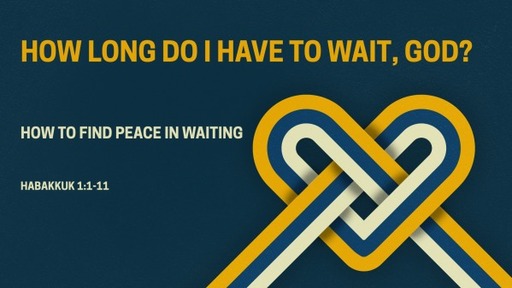How Long Do I Have to Wait, God?

The oracle (see p. 19) was received ‘in a vision’ (NEB, JB) by Habakkuk, who is here called a prophet. This title is rare in book headings (see Hag. 1:1; Zech. 1:1), and is taken by some to indicate that Habakkuk was a professional prophet, one who earned his living serving as a prophet at the temple or court, unlike Amos (cf. Amos 7:14). While this is not certain, he at least was recognized in this period of apostasy as one who spoke the message of God.
Habakkuk loved God, but he was prepared, as few others would be, to engage him in a probing dialogue about the rightness of his actions. Most believers, of course, encounter a time in their spiritual life when they doubt or question God. Few, however, as Job did, openly debate the issues. Even rarer is an individual who will stand before God and confront him with apparent anomalies in his actions towards mankind. This is what the prophet Habakkuk did, even going a step beyond this to challenging God on the response which he gives to Habakkuk’s initial question.
Less is stated in the Bible concerning Habakkuk than almost any other prophet. Not even his father, tribe or hometown are mentioned. His name is apparently not Hebrew but comes from the Akkadian word for some plant or fruit tree.1 Akkadian speakers were intimately involved in the life of Israel at this period (see pp. 42–43 below).
Judah had witnessed the downfall and exile of her northern sister Israel slightly more than a century previously. She herself had not learnt, however, that repeated violation of the covenant with God on her own part would not be left unpunished forever. She would now, according to the prophet, be faced with a similar fate herself.
The prophecy anticipates the Babylonian’s defeat, which finally took place before the combined power of the Indo-Aryan Medes and Persians who, under Cyrus, captured Babylon in 539 BC.
